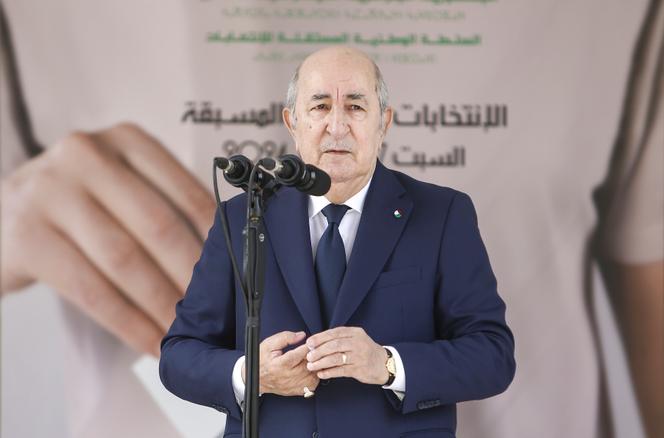


Bad winds are blowing in Algeria's Saharan confines at a time when its relations with Morocco, the Sahel and Libya are more troubled than ever. Will Abdelmadjid Tebboune, Algeria's incumbent president, 78, whose re-election with 94.65% of the vote was announced on Sunday, September 8, be able to restore his country's strategic position, which has deteriorated considerably in recent years? The geopolitical challenge posed by the crises unfolding at national borders will undoubtedly be one of the biggest issues of his second term.
If the threat is often dramatized in the Algerian press and pictured as a plot – "A plan is emerging to encircle Algeria with conflicts in neighboring countries (...), with the obvious aim of destabilizing it," wrote the daily Le Soir d'Algiers in a column published on September 2, entitled "La machination" – it is a fact that the country's regional environment has become volatile. And Algeria is struggling to regain control, as if its diplomatic abilities had become obsolete.
While the dispute with Morocco over the Western Sahara continues to escalate, to the point of fuelling a worrying arms race, a new hotbed of crises was ignited in 2024 with Mali. On January 25, Bamako backed out of the "Algiers Accords" on the stabilization of northern Mali signed in 2015 with rebel groups under the auspices of Algeria.
The breakaway gesture merely consecrated a new deal on the ground, where the Malian junta resulting from 2020 and 2021's two putsches has resumed the offensive against northern rebel groups – Tuareg and Arab – with the support of Wagner's Russian paramilitaries.
Authorities in Bamako criticized Algeria's "interference" in protecting its Tuareg and Arab allies, now "terrorists" in their eyes, while the Algerian press brandished the specter of a new "chaos in Mali." In fact, clashes resumed in northern Mali, culminating in the summer: A severe defeat suffered by Bamako forces and Wagner soldiers (July 25-27) in the Tin Zaouatine region, on the Algiers border, was followed a month later by bombardments by Malian drones, the famous Turkish-made Bayraktar TB2, in the same border zone with Algeria, at the cost of numerous civilian casualties.
"In two days, 5,000 people flocked to Algeria," said Abdelaziz Rahabi, former Algerian minister and ambassador. Faced with the gravity of the events, Algeria's permanent representative to the United Nations, Amar Bendjama, immediately denounced in Washington "the violations of private armies used by certain countries" – an allusion to Wagner in the service of Bamako –, going so far as to call for "sanctions." His Malian counterpart accused him of "relaying terrorist propaganda in [the] region."
You have 67.01% of this article left to read. The rest is for subscribers only.
